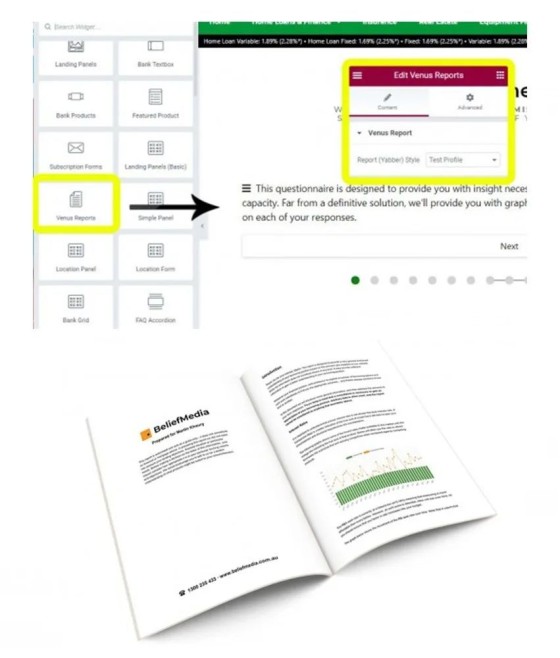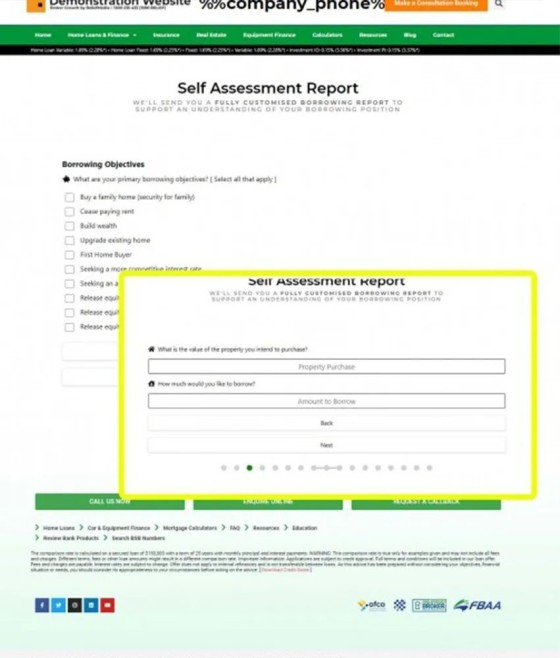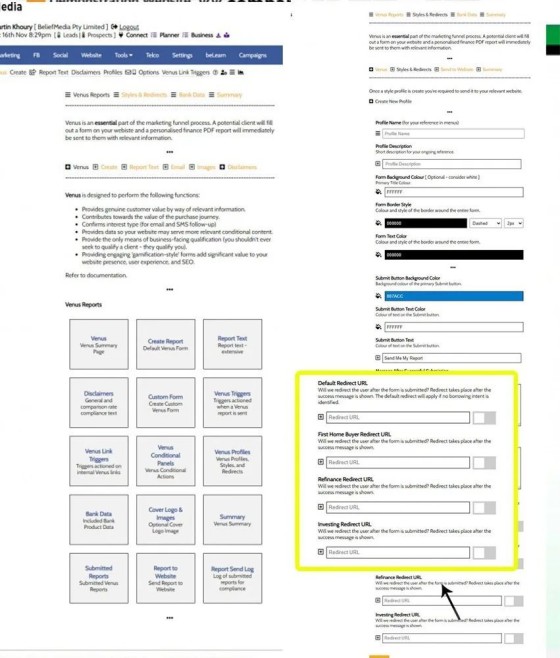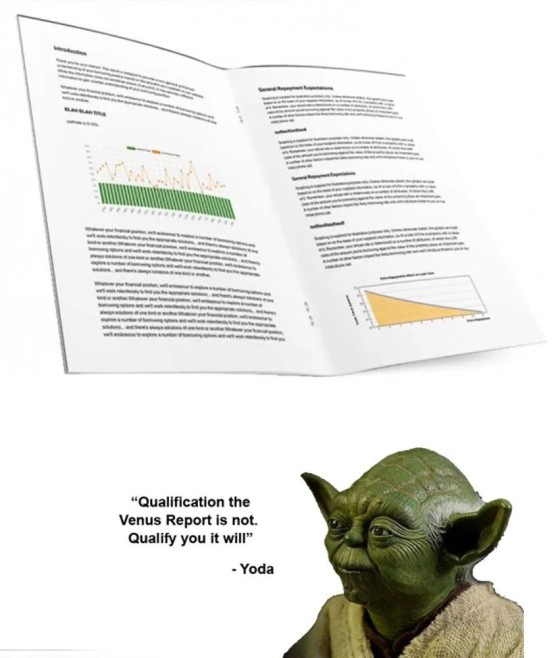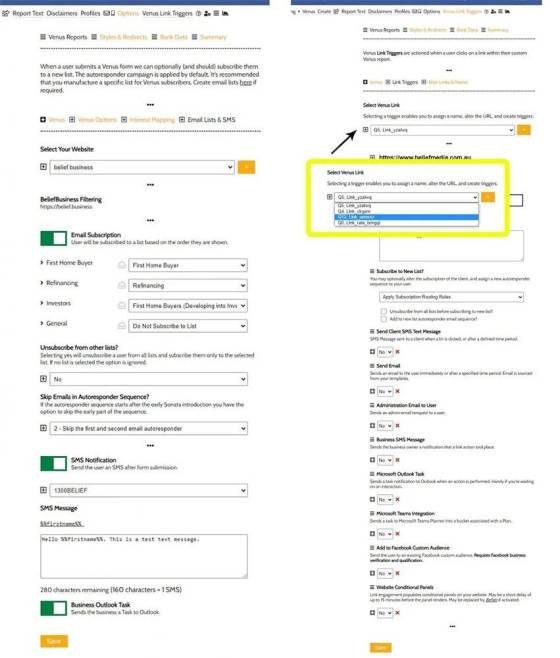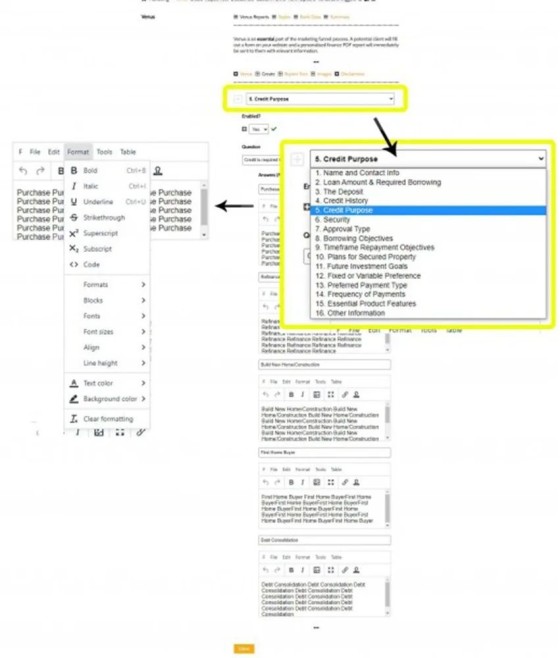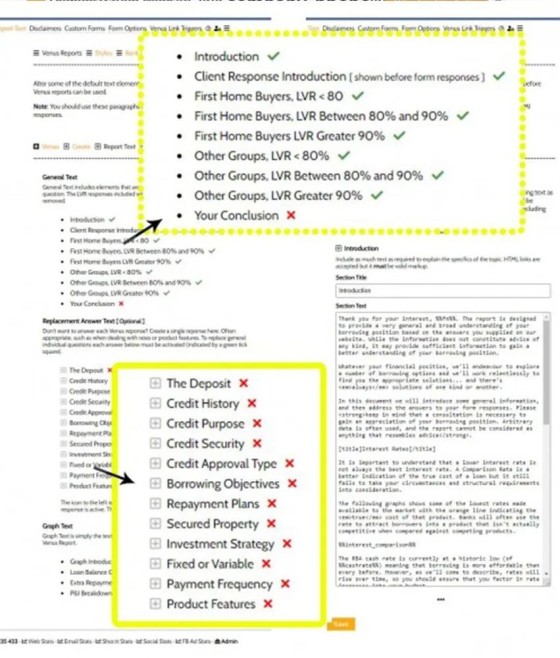We've used Venus for years, so we're partially responsible for the leadgen crowd trying to copy our tech.... except they don't understand the methods or data science, so they got it completely wrong. If you've ever used a 'quiz' as part of a Facebook campaign we bet you've never seen numbers on the bounce rate, and we guarantee you have no understanding of how many high-value clients you've lost because a time-poor investor didn't want to waste their time with a spammy form. Any marketing representation that has introduced this solution is guilty of professional negligence - it makes us seriously mad.
What makes Venus different (since it is a 'type' of quiz)? As stated, Venus is in no way designed to qualify the client - it's designed to qualify *you*. The PDF report that is automatically generated and sent to the user does what a funnel asset is supposed to do: qualify you and generate a phone call. The tool can be used anywhere in the funnel and it obviously forms part of your organic conversion strategy.
A funnel should only do one thing: provide client value. That value is what crafts an Opportunity. Any obstacles at the top of funnel (and most definately at the initial subscription) will massively and severely impact on the quality of candidate digital returns. Any keystroke, thought, hoops, or effort asked of a client at top of funnel (pre email) diminishes the value of the quality of client your pipeline returns. This truth is what makes conditional redirects so powerful, and why we assign escalated importance to our page-two objective (we have them now... time to work our funnel magic).
Completion of the form launches a bunch of triggers, such as email, SMS, and page redirections.
You'll want to talk to us about Venus (and similar) form advantages. It's a big topic.


